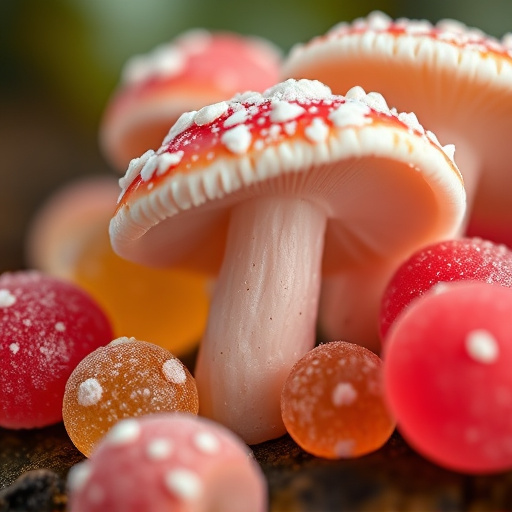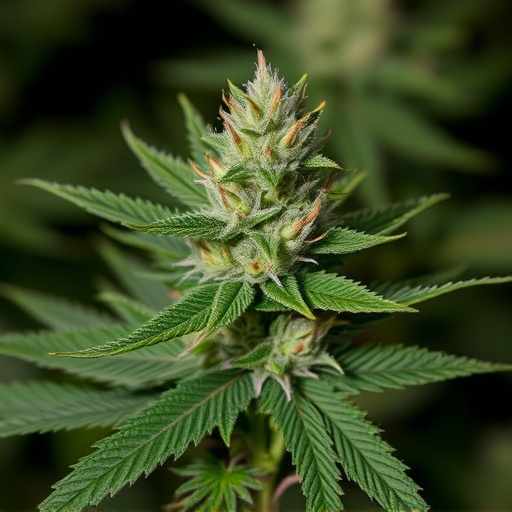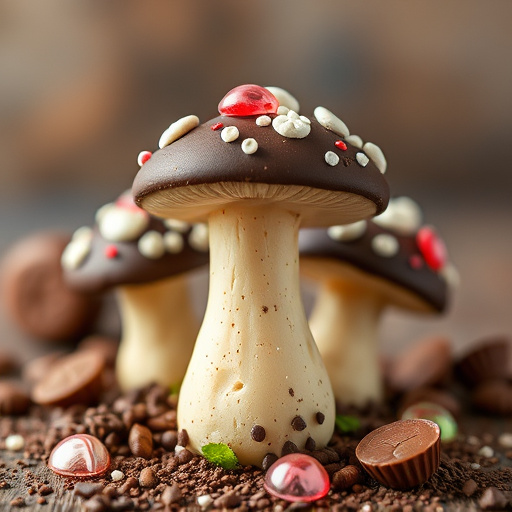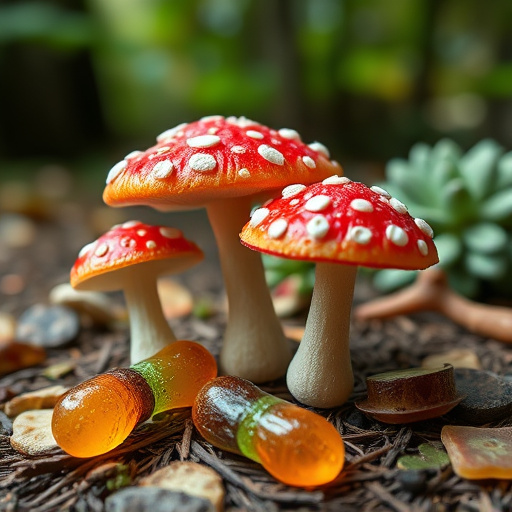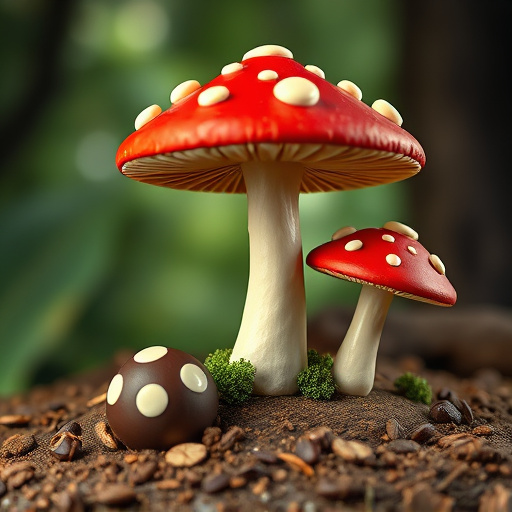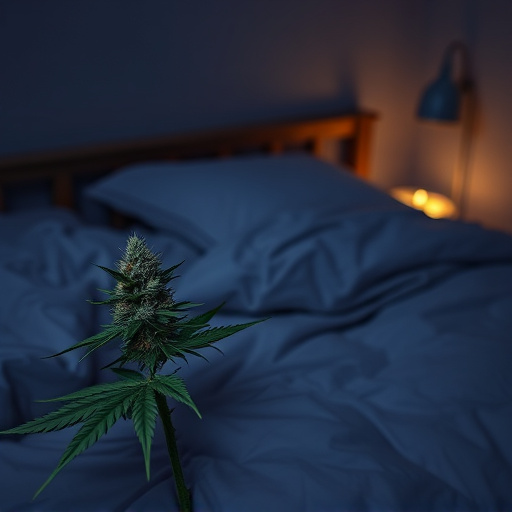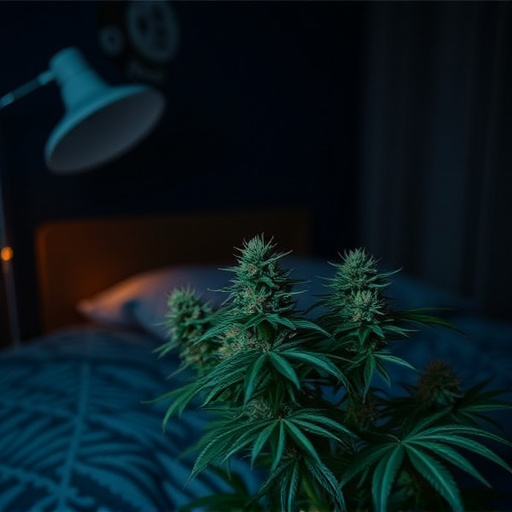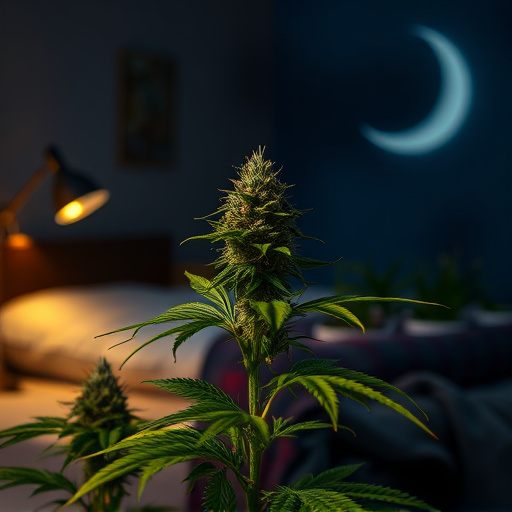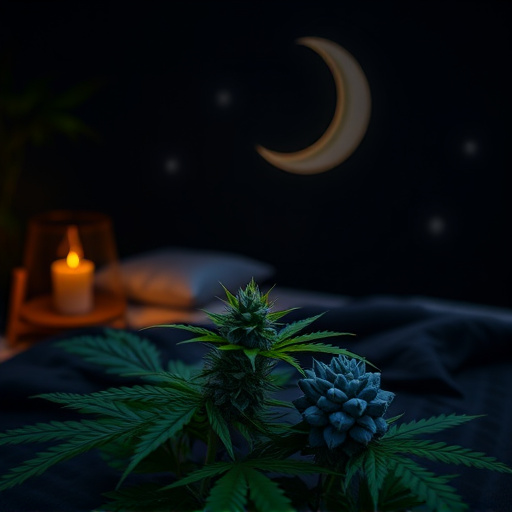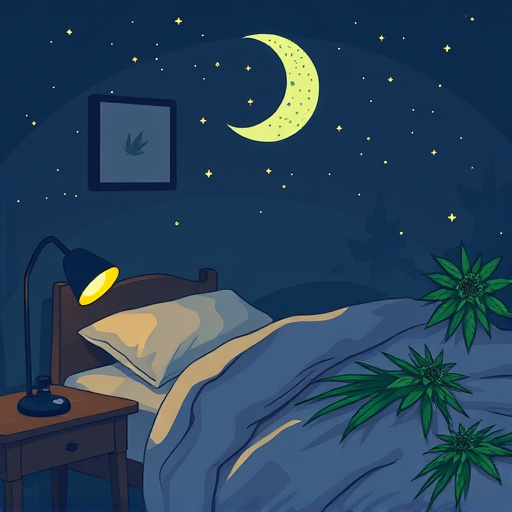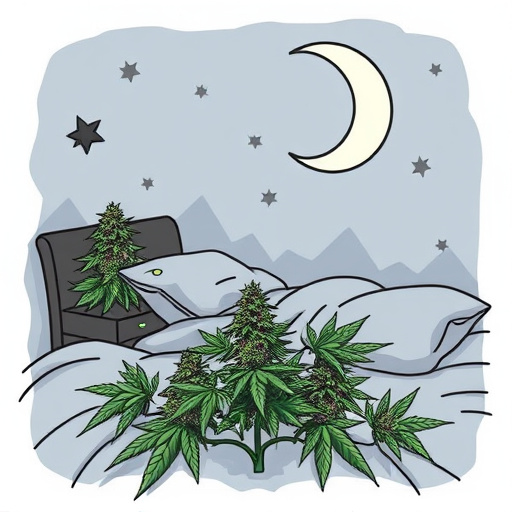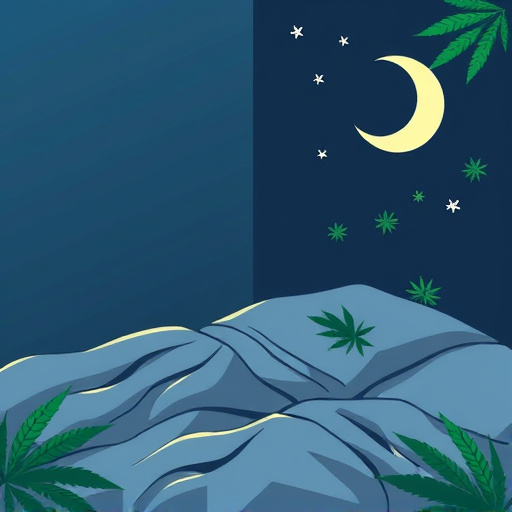Cannabis can help with insomnia, but high THC strains may worsen anxiety and disrupt sleep. CBD-rich strains offer a safer alternative. Research shows varying effects across different cannabis strains for insomnia, with some promoting relaxation without psychoactive properties. To ensure safe treatment, consumers should consult professionals, start with low THC, and monitor personal responses.
In today’s legalizing landscape, cannabis flower has gained popularity as a natural remedy, especially for sleep issues like insomnia. However, understanding its potential health risks is crucial before embracing it as a treatment. This article delves into the various dangers associated with cannabis consumption, focusing on its impact on sleep and the specific challenges posed by different strains. By exploring these risks, we aim to empower users to make informed decisions regarding cannabis strains for insomnia.
- Potential Health Risks Associated with Cannabis Flower Consumption
- The Impact of Different Cannabis Strains on Insomnia
- Mitigating Risks and Making Informed Choices for Sleep Aids
Potential Health Risks Associated with Cannabis Flower Consumption

Cannabis flower, while known for its potential therapeutic benefits, also carries certain health risks that are essential to consider, especially when it comes to specific strains used for conditions like insomnia. One of the primary concerns is the impact on mental health. Regular consumption, particularly in higher doses or through potent cannabis strains for insomnia, may increase the risk of anxiety, paranoia, and psychotic episodes, especially in individuals with a predisposition to these disorders. These adverse effects can be more pronounced in certain strains known for their high THC (tetrahydrocannabinol) content.
Additionally, there are respiratory issues to consider. Inhaling cannabis smoke or vapor can irritate the lungs and airways, potentially leading to coughing, wheezing, and other breathing problems. This is particularly relevant when using cannabis as a treatment for insomnia, as it may disrupt sleep quality due to these respiratory discomforts. Furthermore, the long-term effects of regular cannabis use on overall health are still under investigation, with some studies suggesting potential risks to cognitive function and memory.
The Impact of Different Cannabis Strains on Insomnia
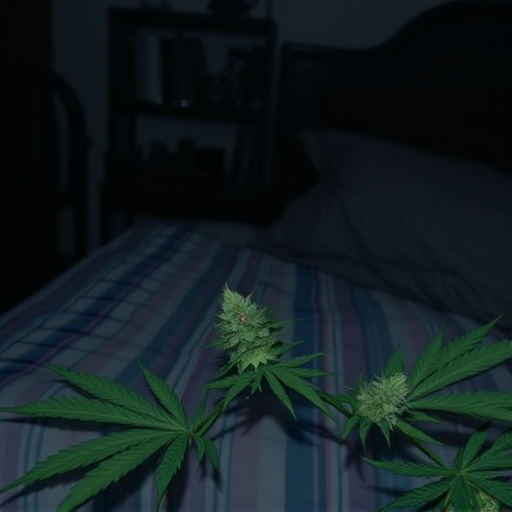
Insomnia is a common issue that many people face, and it’s no secret that cannabis has gained popularity as a potential remedy. However, when it comes to treating insomnia with cannabis strains for insomnia, understanding the impact of different varieties is crucial. Not all strains are created equal, and their effects can vary greatly, offering both promise and potential risks for users looking for relief from sleep disorders.
Different cannabis strains have distinct chemical compositions, primarily due to variations in cannabinoid profiles such as THC (tetrahydrocannabinol) and CBD (cannabidiol). High-THC strains, known for their intoxicating effects, may initially induce drowsiness but can also lead to disrupted sleep patterns later. In contrast, CBD-rich strains are often preferred for insomnia treatment as they typically have lower THC content, offering potential therapeutic benefits without the psychoactive effects that might interfere with sleep quality. Therefore, when exploring cannabis strains for insomnia, it’s essential to consider the specific cannabinoid ratios and choose strains known for their calming, relaxing properties.
Mitigating Risks and Making Informed Choices for Sleep Aids
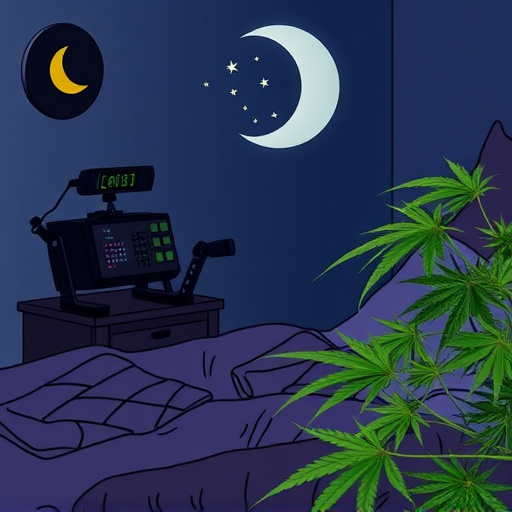
While cannabis can offer potential relief for sleep issues, including insomnia, it’s crucial to understand and mitigate associated risks. Using cannabis for sleep aids requires a thoughtful approach due to its variable effects on individuals. Different cannabis strains for insomnia exist, each with unique compositions of THC (tetrahydrocannabinol) and CBD (cannabidiol). High THC levels can induce anxiety or paranoia in some users, disrupting sleep rather than aiding it. On the other hand, CBD-rich strains may be more suitable for sleep as they interact differently with the body’s endocannabinoid system, promoting relaxation without psychoactive effects.
To make informed choices, consumers should research specific cannabis strains for insomnia and their effects. Start with low THC content and gradually increase if needed. Consulting a healthcare professional or a knowledgeable budtender can provide guidance tailored to individual needs and help navigate potential risks. Remember that everyone reacts differently to cannabis, so monitoring personal responses is essential for mitigating risks and ensuring a safe, effective sleep aid experience.
While cannabis flower offers potential benefits for managing insomnia, it’s crucial to be aware of associated health risks. Different strains can have varying effects on individuals, so understanding their compositions and impacts is essential. By carefully selecting suitable cannabis strains for insomnia and making informed choices with the help of healthcare professionals, users can mitigate risks and harness its therapeutic potential.


